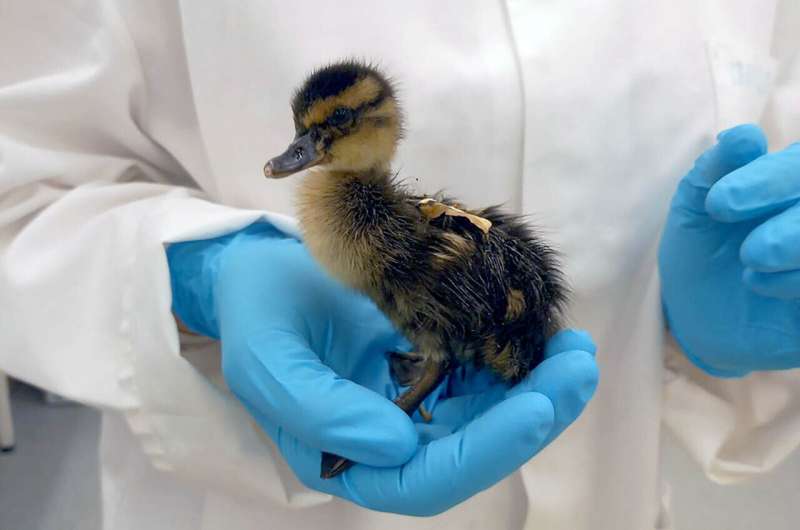
The European Union is contemplating a comprehensive ban on per- and polyfluoroalkyl substances (PFAS), commonly referred to as “forever chemicals,” due to their significant environmental risks. Recent research indicates that these chemicals can alter the genetic makeup of bird embryos, specifically ducklings, before they hatch. The findings were published in the journal Environmental Toxicology and Chemistry on November 11, 2025 by a team at the Norwegian University of Science and Technology (NTNU).
PFAS are widely used in various consumer products, including non-stick cookware, waterproof clothing, and food packaging. Their durability in the environment has led to widespread contamination, with traces found in drinking water and even recreational areas, such as ski tracks where PFAS were once used in ski wax. Although some PFAS compounds have been banned due to their toxicity, thousands remain in circulation, raising concerns among scientists and environmentalists.
Research conducted by Professor Veerle Jaspers and her team focused on two newly identified PFAS chemicals found in wild duck eggs. “These substances exist in nature, yet we know very little about their effects,” Jaspers stated. The study aimed to understand how these chemicals affect the development of mallard ducklings.
Laboratory Experiments and Findings
Due to the complexities of studying wild birds in their natural habitats, the researchers conducted their experiments in a controlled laboratory environment. They injected mallard duck eggs, sourced from a farm, with either one of the new PFAS chemicals or PFOS, a previously banned compound known for its harmful effects.
The eggs were incubated, and upon hatching, the team collected samples from three critical organs: the liver, heart, and bursa fabricii. Each organ’s gene expression was analyzed to identify which genes were activated or deactivated.
The results indicated that the liver of ducklings exposed to the new PFAS substances showed significant changes in genes regulating fat metabolism. “This is crucial because mallard ducks must manage their fat reserves for breeding and migration. Disruptions could hinder their survival or reproductive success,” Brand explained.
While the heart appeared largely unaffected, this was unexpected, given that other studies have linked PFAS exposure to heart development issues in various species, including humans. Brand mentioned that the timing of the tests might have influenced these results, as adverse effects could manifest later in development.
The bursa fabricii, an immune organ unique to birds, exhibited increased activity in a gene associated with viral detection across all exposed ducklings. “This finding is intriguing as it suggests heightened immune readiness, but we cannot yet determine if this is beneficial or detrimental,” Brand noted. The team plans to monitor the birds as they mature to assess their immune responses to actual viral threats, such as bird flu.
Implications for Regulations
The research underscores the potential dangers posed by both emerging and legacy PFAS chemicals. The findings align with ongoing discussions within the EU regarding the regulation of PFAS as a group rather than addressing each compound individually. “Given their similar chemical structures, treating all PFAS together is a more efficient approach to regulation,” Jaspers stated.
The researchers emphasize that further studies are necessary to gather more data, particularly experiments that better reflect natural conditions. They caution that PFAS can have immediate and long-lasting effects on wildlife, particularly at the beginning of life.
“Forever chemicals do not just have long-term consequences. They are a problem right from the very beginning of life,” the researchers concluded in their article. As the EU moves closer to potential regulatory actions, this research will play a vital role in shaping future policies aimed at protecting both human and environmental health.






